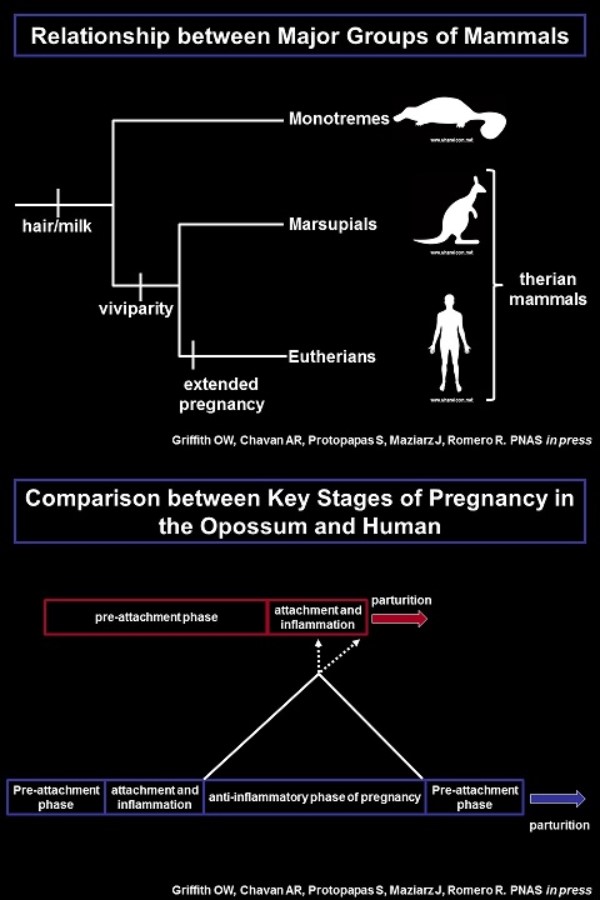
A new study released today in the prestigious Proceedings Of The National Academy of Sciences describes the important role in inflammation in the process of embryo implantation, which is key for natural conception, as well as for women with infertility undergoing assisted reproductive technologies such as in vitro fertilization. Such technologies represent the most frequent treatment for female infertility, which affects 10 percent of women in the United States.
The authors, including Roberto Romero, M.D., chief of the Perinatology Research Branch of the Eunice Kennedy Shriver National Institute of Child Health and Human Development, and professor of Molecular Obstetrics and Genetics for the Wayne State University School of Medicine, bring an evolutionary perspective to study the fundamental mechanisms whereby implantation occurs in mammals including marsupials, rodents (such as mice) and humans.
Using transcriptome analysis, the authors describe for the first time that pregnancy in the opossum -- a marsupial non-placental mammal -- is characterized by an inflammatory response similar to the one observed at the time of implantation in humans and mice.
The study suggests that when a fertilized egg enters the uterine cavity, the first step required for successful implantation is attachment of the egg to the surface of the uterus, and such process is mediated by an inflammatory process. The fact that the inflammatory signature is observed in ancient mammals such as the opossum, as well as in mice and humans, indicates conservation of this fundamental mechanism required for reproductive success. The evolutionary tools suggest that the mechanisms for implantation in women and in mammals that have a placenta have derived from ancestral marsupials.
Dr. Romero, who also serves as deputy clinical director for Obstetrics and Maternal-Fetal Medicine, Intramural Division, NICHD, National Institutes of Health and Department of Health and Human Service, as well as editor-in-chief for Obstetrics for the American Journal of Obstetrics and Gynecology, said that it is "fascinating that inflammation is required for implantation."
Inflammation is downregulated from the rest of pregnancy until the onset of labor, which is also an inflammatory phenomenon. If acute or chronic inflammation were to occur within the uterine cavity (induced by microorganisms or other inflammatory stimuli), this could induce spontaneous abortion or premature labor.
Identifying how to fine tune the inflammatory response at the time of implantation could improve the success of infertility treatment.
Dr. Romero credited Gunter Wagner, Ph.D., the Alison Richard Professor of Ecology and Evolutionary Biology at Yale and senior author of the study, and Oliver Griffith, Ph.D., a post-doctoral fellow in the Wagner lab and lead author of the study, as well as other members of the team, for the important breakthrough, which brings an evolutionary perspective to the study of reproduction.
The article, "Embryo implantation evolved from an ancestral inflammatory attachment reaction," can be read here.